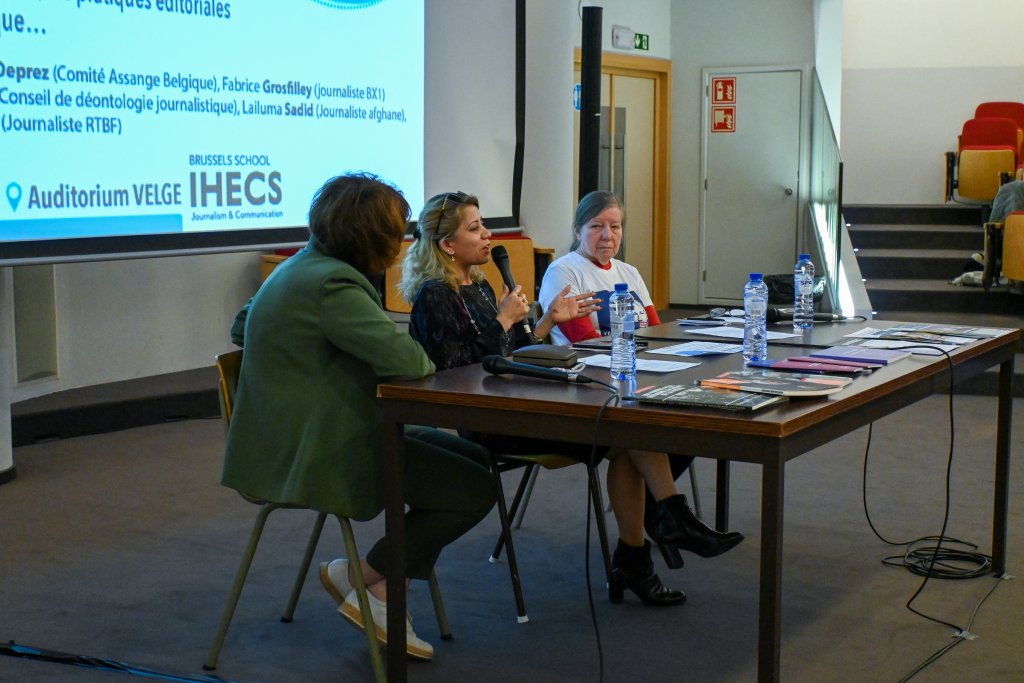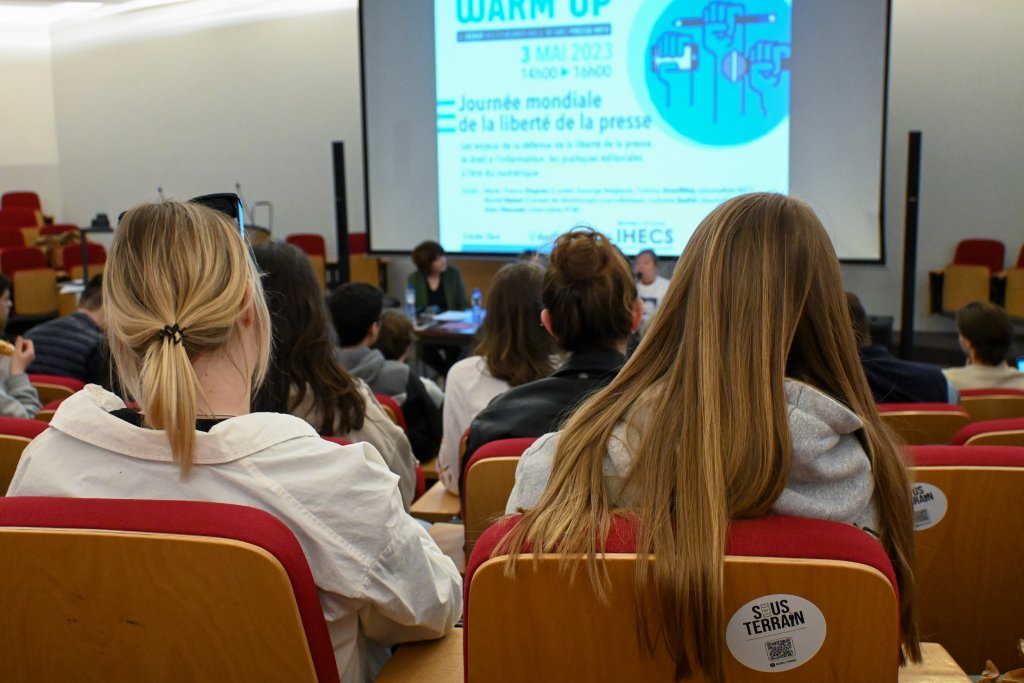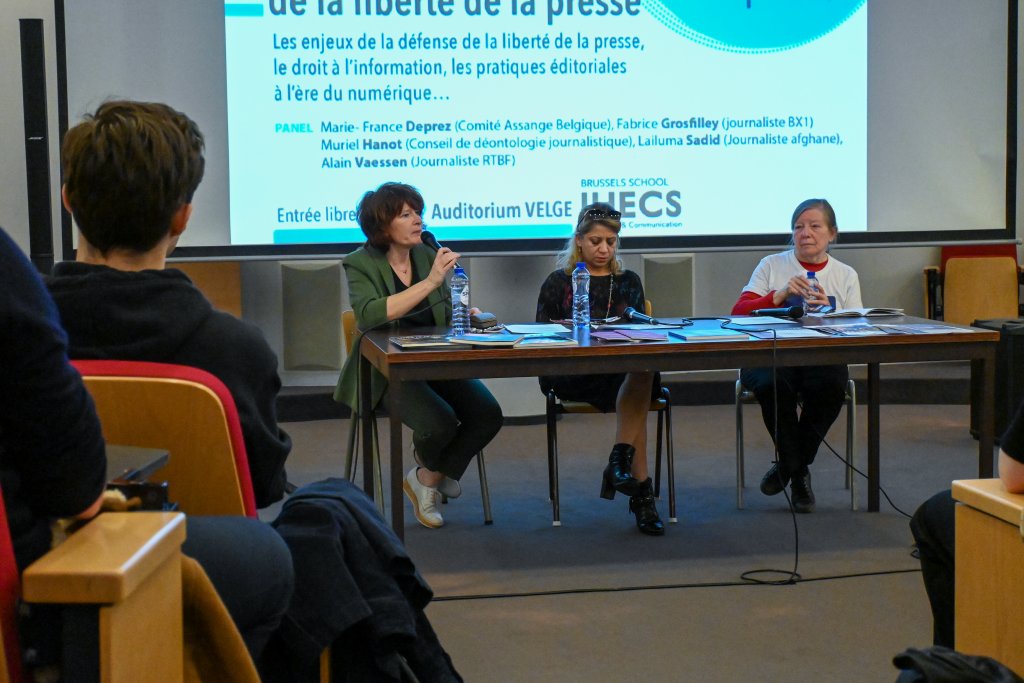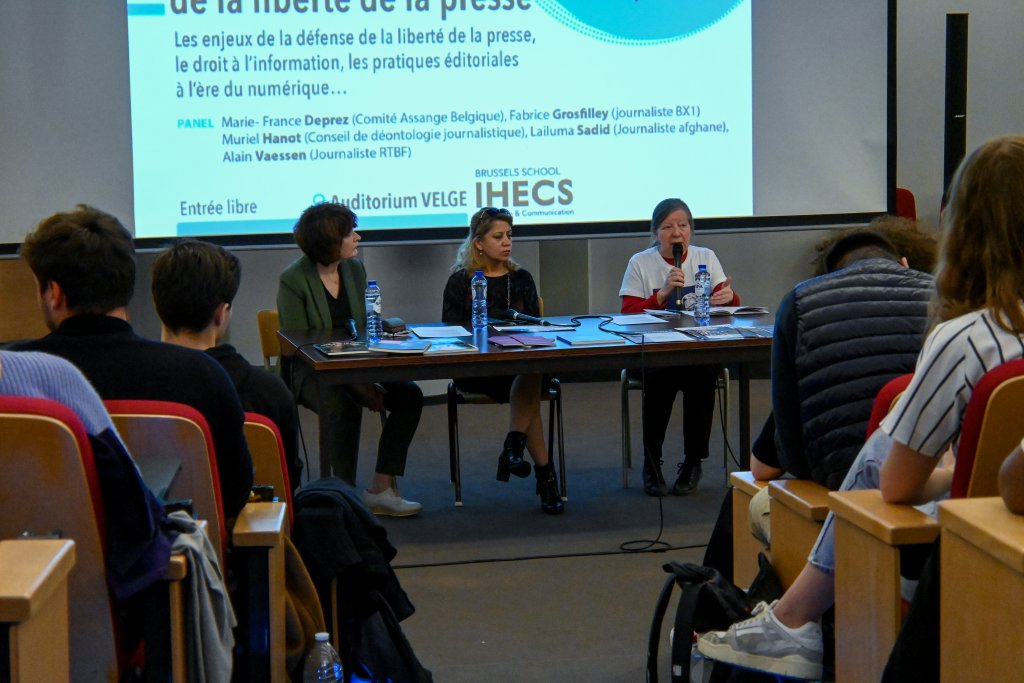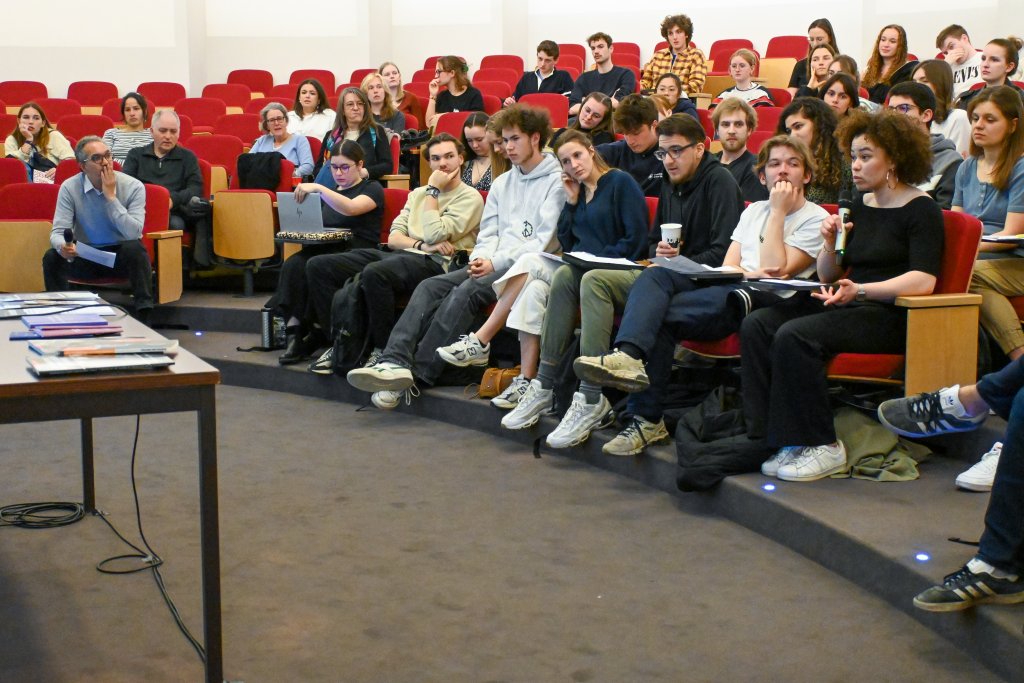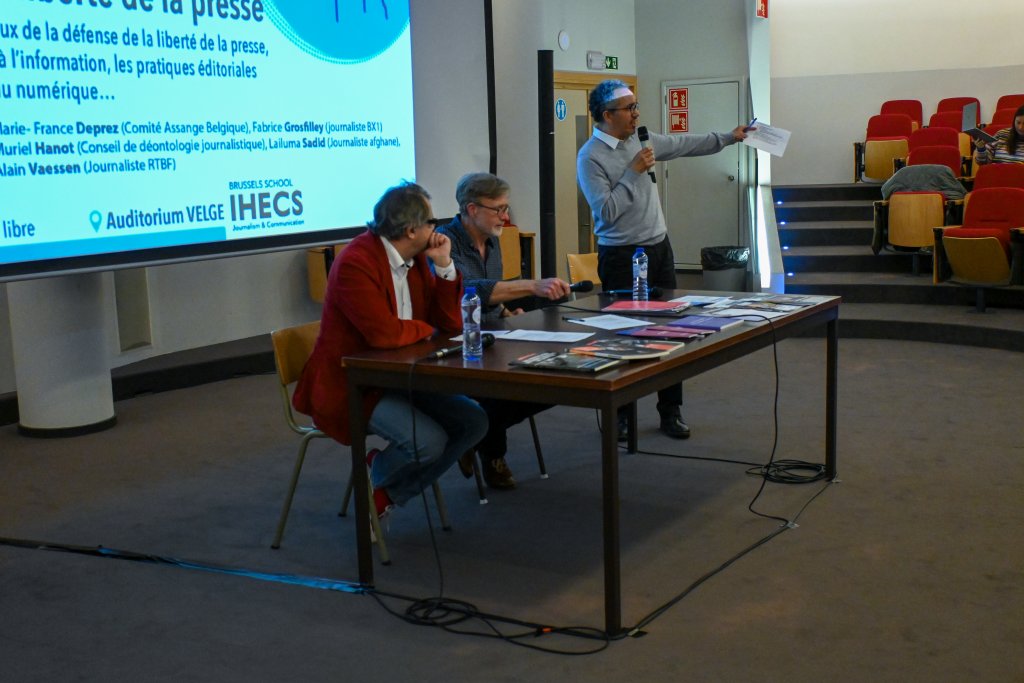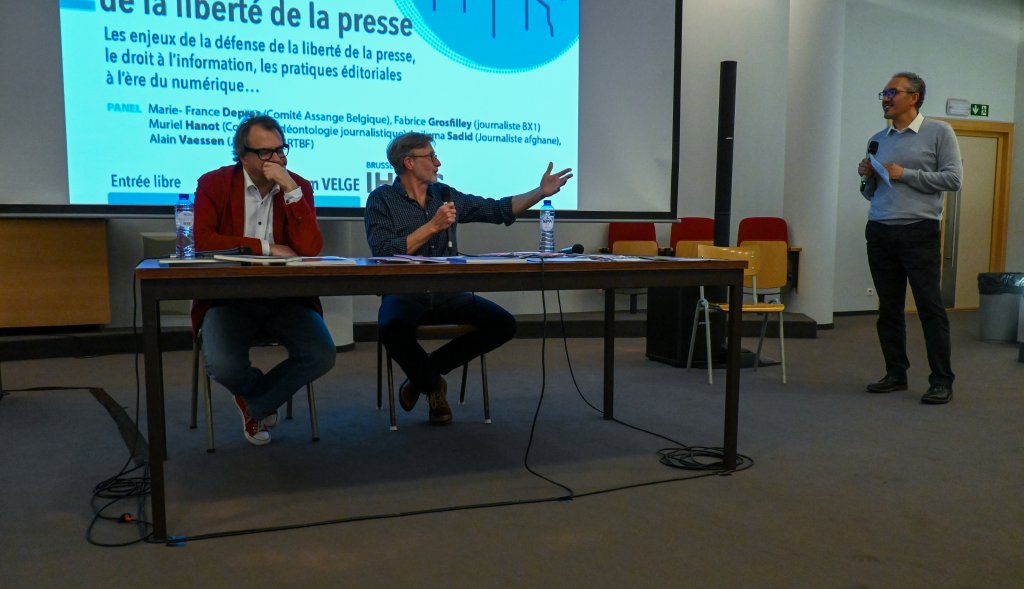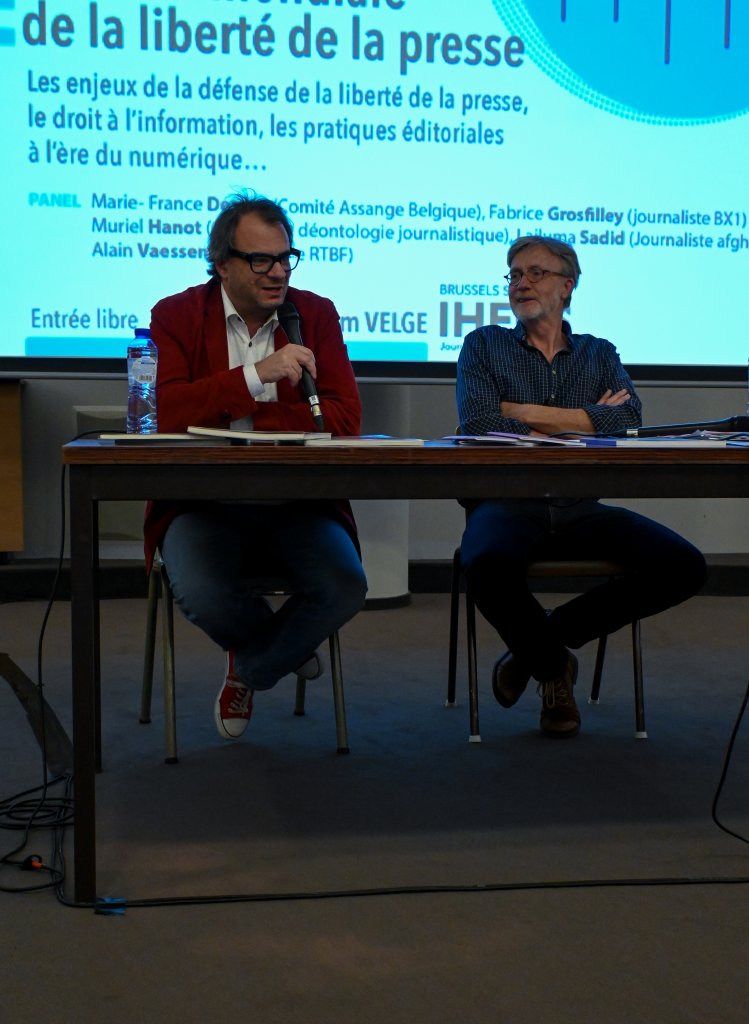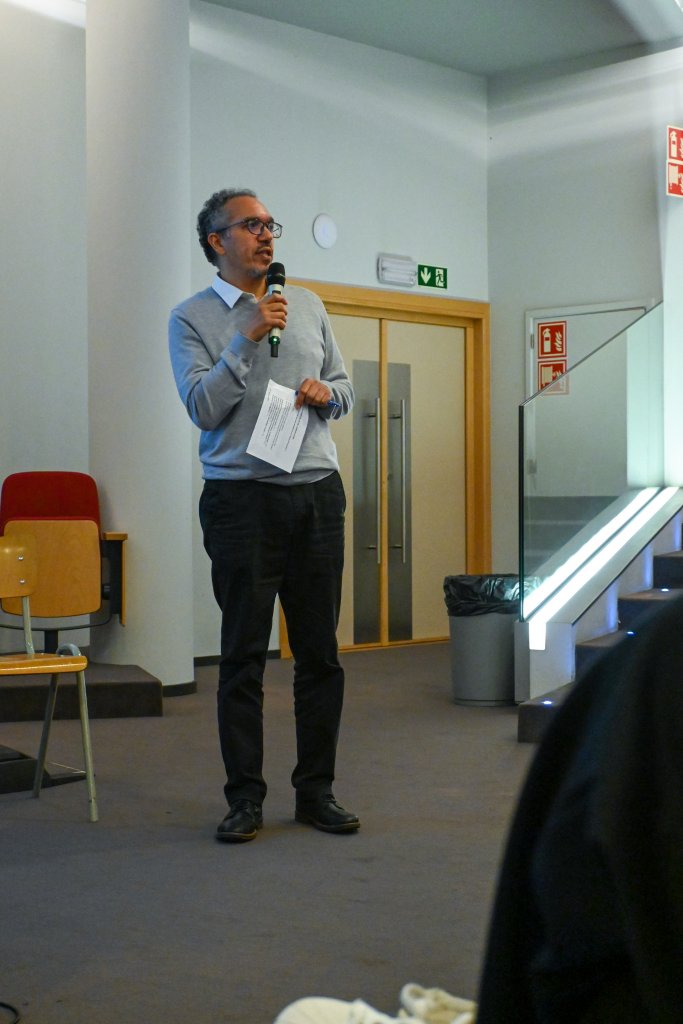The Journalism department celebrates the freedom to inform
Among the guests was Lailuma Sadid, an Afghan journalist exiled in Belgium. The tone and seriousness of her speech, referring to current affairs in her country and the death threats against her, concretely illustrated the dangers and obstacles faced by many journalists around the world today while practising their profession. Marie-France Deprez, spokesperson for the Assange Belgium committee, presented the actions of her collective in support of the founder and spokesperson of WikiLeaks, detained in the United Kingdom for three years. Muriel Hanot, from the journalistic ethics council, returned to the role and objectives of this self-regulatory body for the profession. The students’ questions, prepared as part of an upstream course, made it possible to address topics as diverse as the protection of sources, economic independence, respect for ethics, the necessary level of protection of journalists and whistleblowers, the Freedom Act.
In the second part of the debate, Alain Vaessen, journalist at RTBF, and Fabrice Grofilley, journalist at BX1, returned to the polarisation of debates, the economic concentrations within the sector, the quality of information and the changes in practices linked to digital development. The questions and answers were always illustrated with concrete examples, without the use of jargon and in the spirit of trying to understand why the profession is subject to a certain level of mistrust on the part of citizens, and how editorial can rebuild trust with their audiences. Among the topics explored: the role of new generations of journalists, competition from platforms and social networks, the place of women in the profession, the ambition to give more voice to audiences remote from the media, or even to give precedence of issues concerning the climate, local news and solution-oriented editorial treatment.
All the opinions exchanged during this debate resonate with the observation of Reporters sans Frontières concerning the explosion of disinformation campaigns: "The difference between true and false, real and artificial, facts and artefacts is blurring, jeopardising the right to information." More than ever, the journalist will be required to report the truth.
